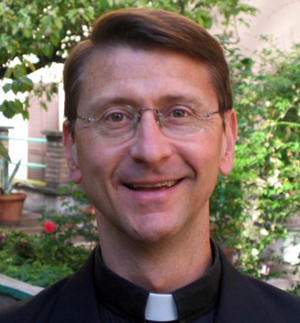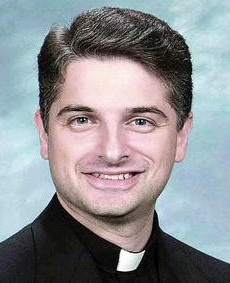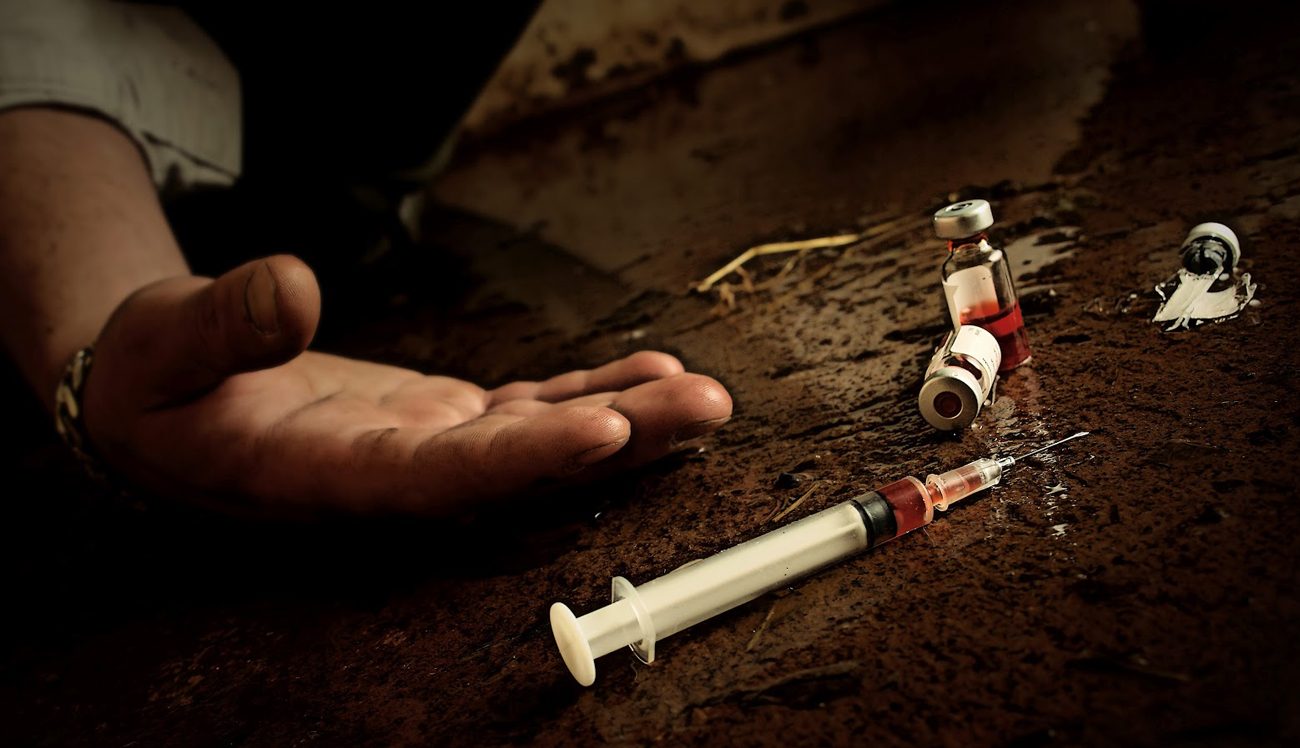Fourth in a CatholicPhilly.com series, “The Opioid Epidemic: A Catholic Perspective,” on the drug crisis in communities served by the Archdiocese of Philadelphia. Read part one, part two and part three of the series. Listen to our podcasts on spirituality and recovery, on Mother of Mercy House and on a theologian’s view of the issue.
***
Abuse of opioid drugs has grown from a localized phenomenon to a full-blown national health crisis in less than two decades.
Underscoring the concern now among the highest levels of policy makers, President Donald Trump declared opioid addiction a national emergency Aug. 10. A presidential commission issued a preliminary report July 31 indicating drug overdoses claim approximately 142 lives every day in the United States.
It called the opioid epidemic “unparalleled” and said “drug overdoses now kill more people than gun homicides and car crashes combined.”
[hotblock]
While opioid abuse is a fairly recent development in the U.S., substance addiction in general has long been the subject of extensive research by scientists and health care professionals — and by Catholic moral theologians, who work to understand how the faithful can best respond to the Gospel in their daily lives.
At the heart of this inquiry lies a key question: To what extent is addiction a sin, and to what extent is it a sickness?
The answer is far from simple.
“Addictive behavior could have elements of sin in it, and it also has elements of disease in it,” said Redemptorist Father Dennis J. Billy, a former John Cardinal Krol chair of moral theology at St. Charles Borromeo Seminary in Wynnewood who now resides in New York State.
Addiction weakens one’s freedom

Redemptorist Father Dennis J. Billy
Sin itself is a highly nuanced term, Father Billy said in a phone interview with CatholicPhilly.com. It occurs at many levels, including the personal, social and universal, and in degrees of gravity.
(Listen to a podcast of our conversation with Father Billy, who discusses how science, free will, demons and prayer all play a part in the complex issue of addiction.)
Mortal sin, as defined in the Catechism of the Catholic Church, “destroys charity in the heart of man,” while venial sin “allows charity to subsist, even though it offends and wounds it” (CCC, 1855).
In the case of addiction, both the level and gravity of sin varies.
An individual can knowingly choose to misuse addictive substances such as opioids, thereby committing “grave mortal sin,” wrote Father Bernard J. Taglianetti to CatholicPhilly.com via email.
Father Taglianetti, a professor of moral theology at St. Charles Borromeo Seminary, added that addiction ultimately erodes a person’s ability to choose otherwise.

Father Bernard J. Taglianetti
“The person with an addiction has become enslaved by the harmful substance and has weakened his freedom,” he wrote. An addict whose freedom has been “severely compromised” is likely “not guilty of mortal sin, but rather venial sin or not guilty of sin at all.”
In addition, the effects of societal sin should not be underestimated, particularly with regard to the current opioid crisis.
“We could also say that with the opioid epidemic, it’s not just a question of a disease of a single person, but it’s a whole culture which has promoted and enabled this type of behavior on a societal level,” said Father Billy. “We can almost say that we live in an addictive culture.”
Father Matthew P. Schneider, L.C., a Catholic commentator, recently noted that the opioid addiction crisis has been fueled in part by “the loss of a religious worldview, and the idea that we should always be pain-free.”
Many suffering from opioid addiction have found themselves dependent after taking legitimately prescribed drugs such as oxycodone (OxyContin), hydrocodone (Vicodin), and fentanyl, whose addictive properties were either underestimated or misrepresented.
Heroin and illegal fentanyl are cheap and deadly alternatives for many addicts, and mire users even more deeply in despair.
To the extent that they can, addicts must “choose the good” by seeking help and striving to recover, wrote Father Taglianetti.
Yet addiction, which is evil in its effects — and which is brought about by some degree of human choice — remains a “complicated situation,” wrote Father Taglianetti, adding, “We should not judge a person with addiction.”
A disease of the body, mind and spirit
Moral theologians have embraced scientific research that views addiction as a disease, one that severely damages the brain’s circuitry.
As addiction has come to be considered a disease by professional groups such as the American Medical Association, it is also seen as an attack on the body, mind, and spirit. This perspective was developed in depth by the founders of Alcoholics Anonymous (AA) beginning in the 1930s and 1940s.
[hotblock2]
Jesuit Father John C. Ford, a prominent moral theologian of the 20th century, advocated the Catholic Church’s acceptance of AA and the recovery movement.
From 1947 until his death in 1989, Father Ford worked closely with AA’s founders, medical professionals, clergy and addicts to formulate a moral theology of addiction.
Today the 12-step process they formed is used as a lifeline for recovering addicts of substances or behaviors to reintegrate the physical, mental and spiritual in a supportive community of recovering persons.
Only in his final months did Father Ford publicly admit that “he himself had been a recovering alcoholic for over 40 years,” wrote Oliver J. Morgan, professor of counseling and human services at the University of Scranton, in a 1999 article.
Pastoral response emerges, because ‘lives are at stake’
Building on Father Ford’s legacy, many Catholic leaders are now calling for a direct pastoral response to the current opioid epidemic.
Earlier this summer Bishop Edward C. Malesic of the Diocese of Greensburg issued a pastoral letter on the drug abuse crisis, in which he outlined a 14-point action plan for the western Pennsylvania diocese and its parishes.
“There is no time to waste,” he said. “Lives are at stake.”
Bishop Malesic urged the faithful to work with existing health care, social services and governmental agencies in addressing the epidemic. He emphasized the need for education, prevention and, in particular, prayer.
“Do not be afraid to pray with (the addicted) right on the spot,” he said.
Moral theologians endorse this recommendation and emphasize the relationship with God offers eternal hope and profound healing to the addicted.
“We have to be very, very careful of reducing the human person to the level of the physical,” said Father Billy. “We are also spiritual beings.”
“The person with an addiction should never forget that Jesus loves him or her,” wrote Father Taglianetti. “St. Paul tells us that nothing will be able to separate us from the love of God in Christ Jesus our Lord” (Romans 8:39).
PREVIOUS: Nazi salute ‘compounds the obscenity’ of racism, Archbishop Chaput says
NEXT: Indian Catholics celebrate their faith and ethnic heritage




As an addiction detox physician, I strongly agree with this article. There is much blurriness and many differences in the patients motivations and attitudes to the addiction.
To the extent that the addict is a moral agent, he has the freedom to choose right or wrong. This freedom is at its peak BEFORE the addict takes his first dose of drugs. Once addicted, his freedom is proportionately reduced by his physical and mental dependency, and his urge for the fix. The understanding of the increased need for grace is a part of the 12 step program. Addicts must rely on the grace of God to help them to resist the temptation to relapse. Addiction, like some other mental illnesses, can easily be misunderstood. But it is real, and worthy of the support of people of good will.
This article is self-contradictory. It states, on the one hand, that ingesting addictive substances could be sinful–even, mortally so–and ends by asserting that, because freedom is thereby compromised, a person who is addicted must not be “judged.” Of course persons must not be judged, but actions must, if we are to demonstrate obedience to Almighty God and charity to His creatures. Who would say that a drunk driver is not culpable for running somebody over, because alcohol had impaired his judgment by the time he took the wheel? (P. S. I hope I passed your anti-spam quiz. I put, “4,” when prompted to say what 2 plus 2 is, but perhaps now, in the wake of Amoris laetitia, that can no longer be said.)